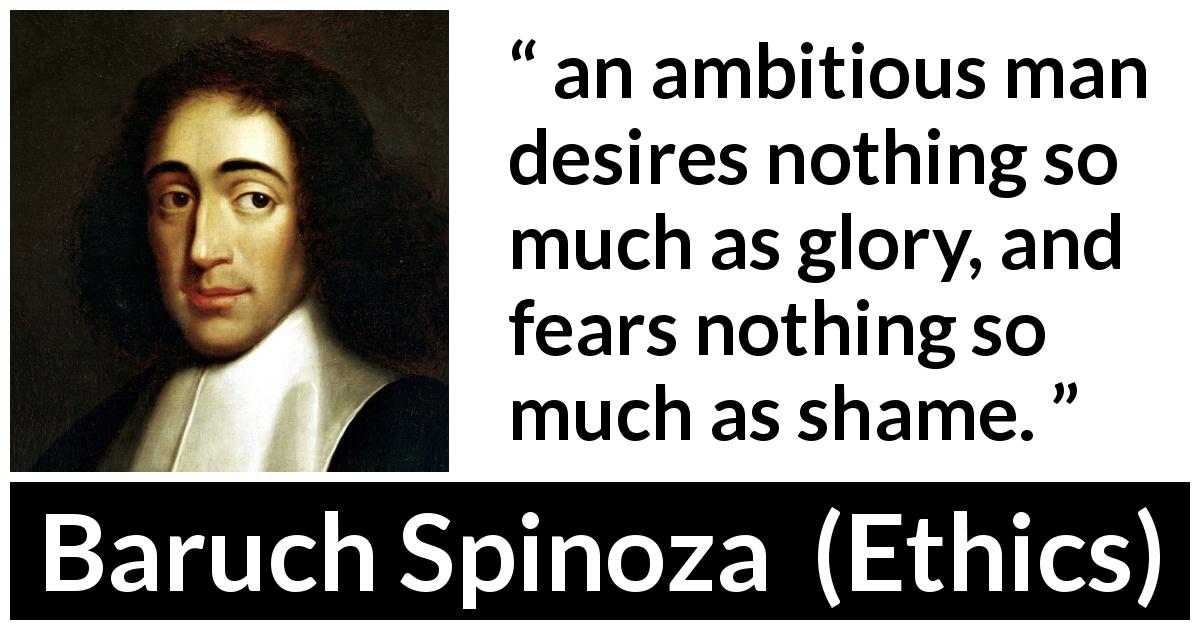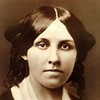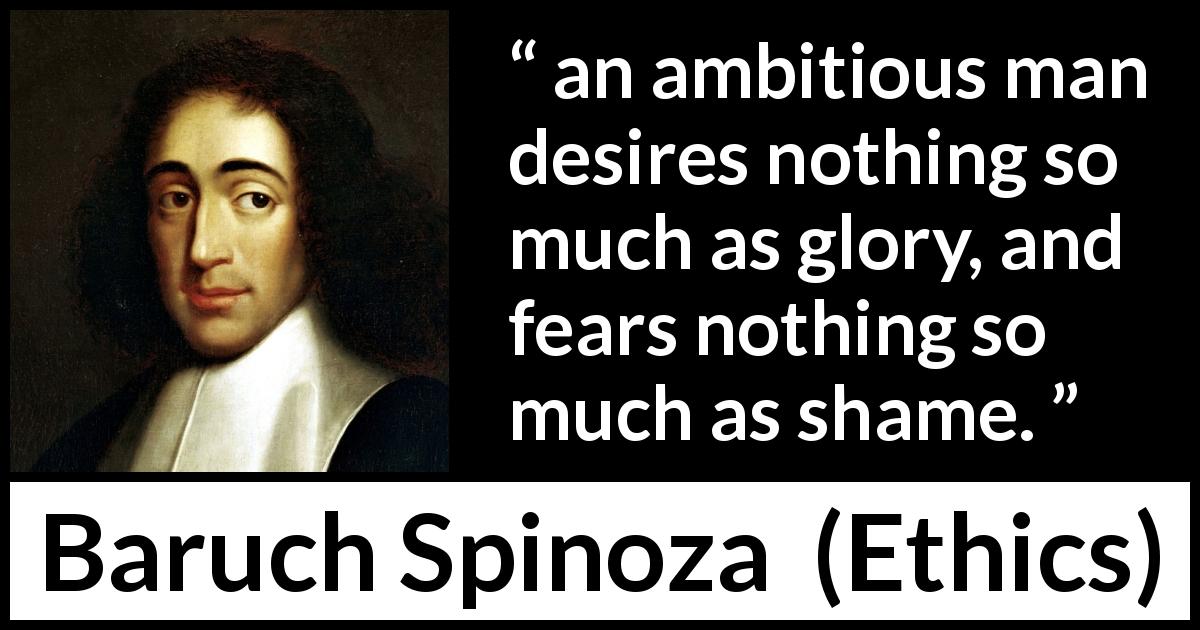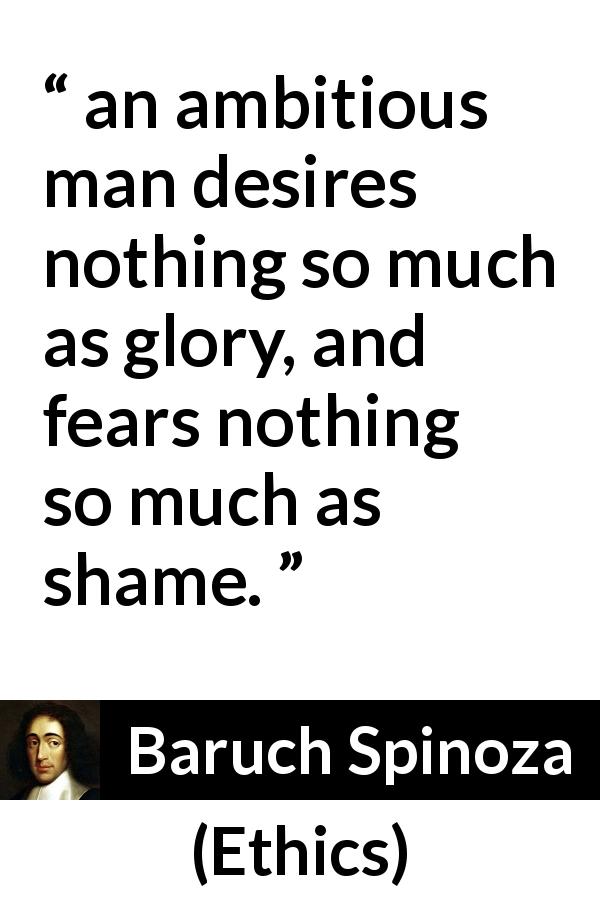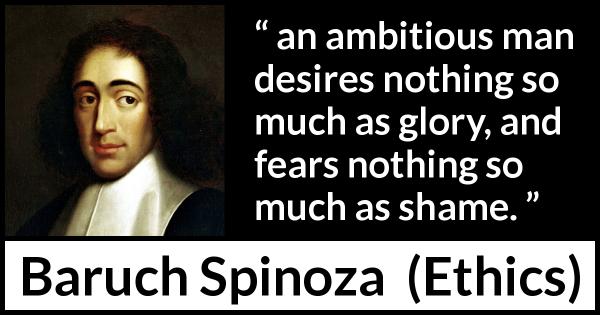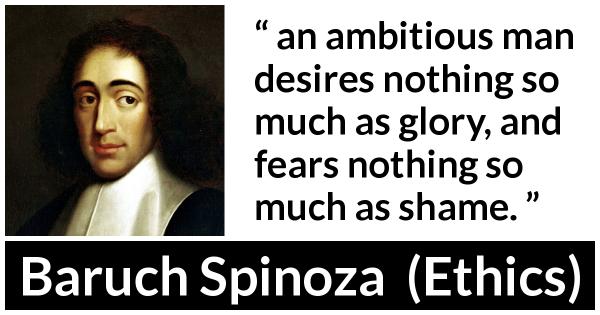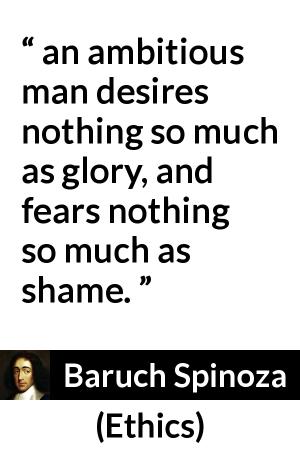“ an ambitious man desires nothing so much as glory, and fears nothing so much as shame. ”
Baruch Spinoza, Ethics (1677). copy citation
| Author | Baruch Spinoza |
|---|---|
| Source | Ethics |
| Topic | ambition shame glory |
| Date | 1677 |
| Language | English |
| Reference | |
| Note | Translated by R. H. M. Elwes |
| Weblink | http://www.gutenberg.org/files/3800/3800-h/3800-h.htm |
Context
“note) that we in no case desire a thing because we deem it good, but, contrariwise, we deem a thing good because we desire it: consequently we deem evil that which we shrink from; everyone, therefore, according to his particular emotions, judges or estimates what is good, what is bad, what is better, what is worse, lastly, what is best, and what is worst. Thus a miser thinks that abundance of money is the best, and want of money the worst; an ambitious man desires nothing so much as glory, and fears nothing so much as shame. To an envious man nothing is more delightful than another's misfortune, and nothing more painful than another's success. So every man, according to his emotions, judges a thing to be good or bad, useful or useless.”
source
